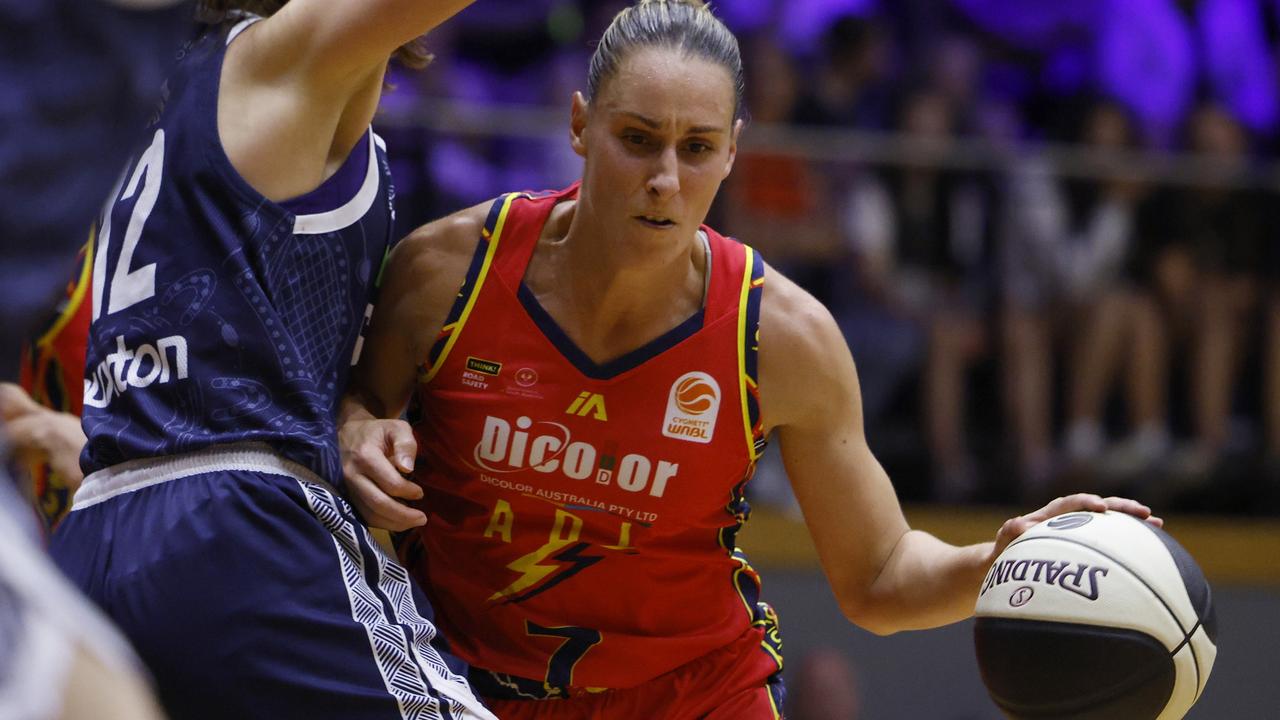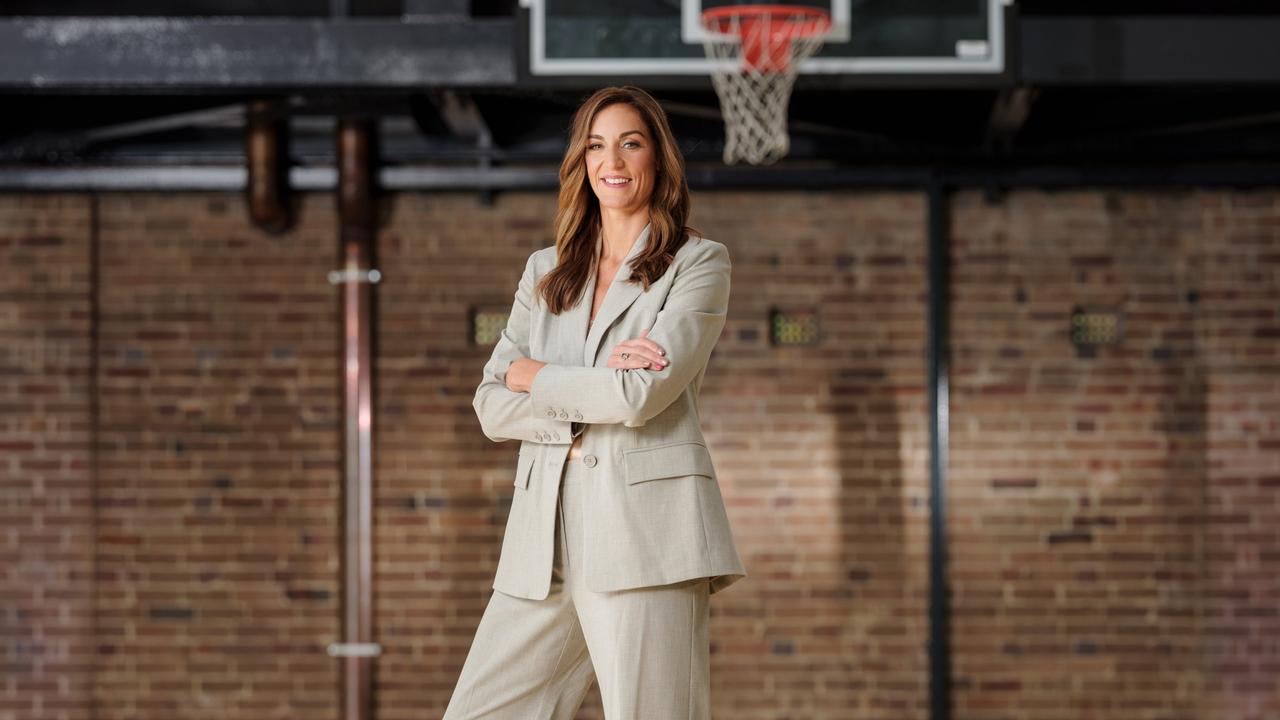Superstar Ash Brazill’s pride in being the first openly gay elite netballer and her personal journey or torment
The fear of losing her family was Ash Brazill’s greatest concern about coming out. The cross-code superstar reveals the inner turmoil that became a driving force.
Insight
Don't miss out on the headlines from Insight. Followed categories will be added to My News.
Ash Brazill never wanted to be the first out elite netballer.
The girl who cried herself to sleep most nights struggling with her inner turmoil while coming to terms with her sexuality didn’t want to be gay.
Raised in an Italian Catholic family where homosexuality was presented as a sin by the church, Brazill believed revealing her true self would only hurt those she loved the most.
She didn’t want the mother, father and brother she loved to feel let down because they had raised a gay child.
An exceptional athlete - she is an Australian Diamonds netball representative and an AFLW footballer - Brazill plays both sports for Collingwood with the courage, determination and passion that is as infectious as it is endearing.
It’s probably little surprise given she once thought a professional sporting career would be inaccessible to her as an openly gay woman.
It’s also part of the reason she’s so passionate about the need for a full pride round in Super Netball.
They say you can’t be what you can’t see. And Brazill not only knew no gay netballers, she knew no one who was gay.
It was only when based at the Australian Institute of Sport (AIS) on a netball scholarship and sneaking out to play Aussie rules that she met another gay person for the first time.
“Football definitely gave me the confidence to come out,” she said.
“When I was at the AIS and sneaking out and playing footy, 90 per cent of my team were gay. And that was my very first experience of meeting a gay person.
“It was just so normal. It wasn’t a big thing. But I couldn’t imagine that in netball because I’d never seen it before.”
Finally, in 2008, Brazill found the courage to reveal her true self to her then NSW Swifts teammates and was accepted for who she was.
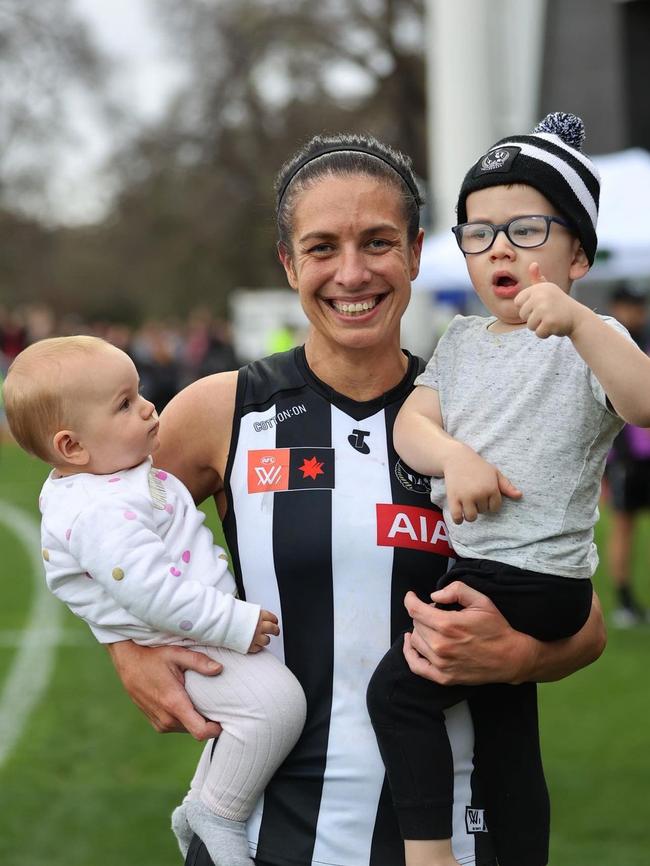
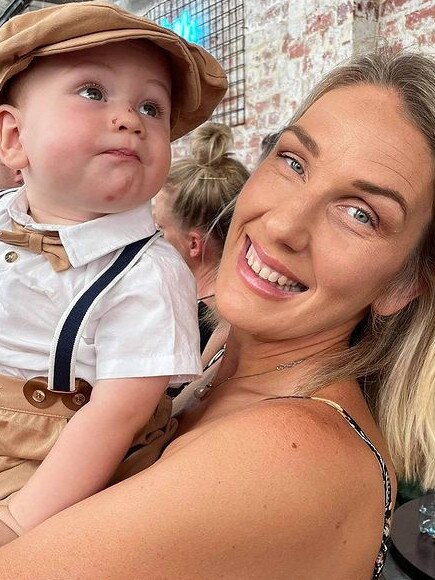
Now “married” to wife Brooke - they had a ceremony before gay marriage became legal in Australia and plan to wed officially on their 10th anniversary - Brazill is free of the emotional chains that once bound her.
“Being the first out netballer was a bit scary because I didn’t know if my career would end,” she said.
“I never wanted to be known as the gay netballer. I just wanted to be known as Ash Brazill, hopefully one day, the best wing defence in the world rather than the first gay netballer.
“And now I’m probably more proud to wear that title because I’ve seen a growth in that area and a lot of people thinking that their sexuality isn’t going to change them making a team or not. But as a kid, you never wanted to be that.”
HELPING OTHERS SPEAK THEIR TRUTH
Netball is Australia’s leading game for woman and girls.
In many ways, it’s a hyper-feminine sport - the dresses, the ponytails, the ribbons - and it can be an uncomfortable place for gay women.
Brazill though never saw the sport in that light.
Growing up in the country, both her parents played and her father - her athletic hero - was a state representative.
While netball is now a safe and welcoming space for gay males, all the men she saw playing back then were straight, married and had families.
They played the game aggressively, strongly and in a manner that made Brazill want to take it up. Their actions shaped the way that she would play in the future, leading her to become one of the world’s best.
Unlike footy though, where there were so many out, gay players, it wasn’t the same in netball.
And while Brazill hasn’t always been comfortable being a leader in that space, she knows how important it is.
“I think that’s probably the reason why I’m so open about our family and Brooke also is,” Brazill said.
“Brooke started dating me when she was 28 … and she knew who she was, she was confident within herself and probably didn’t have the struggles that a lot of young kids face.
“I talk to Brooke about how I struggled and cried myself to sleep most nights.
“Having kids ourselves, the last thing we want is for them to ever feel like they might not be accepted.
“So we’ve chosen to just be open with our life - not push it on people but hopefully kids see my Instagram page or see me playing netball and feel comfortable that they can live this life as well.”
It’s a stance that has already helped others.
Former Queensland Firebirds defender Laura Clemesha said Brazill’s openness had helped her decide to come out to teammates.
“I think in any situation when you don’t necessarily conform to what society would think of as the norm, you’re constantly looking around for evidence or guides from other people about whether or not you’re okay; whether or not you being in the world, acting in the world, is okay,” Clemesha said.
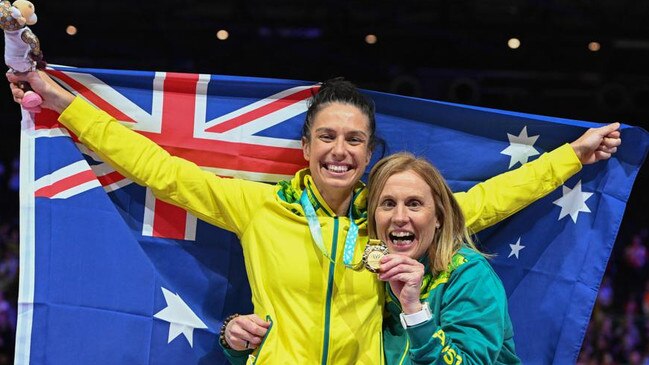
“And being a rising elite netballer at the time, there weren’t many of those signals or cues from those around me that being out and being an elite netballer would be okay.
“(There was) not necessarily anything saying that it wouldn’t be okay but as we know, the absence of representation sends a strong message in and of itself.
“Just having heard conversations about the girls who had played with ‘Braz’ and how she was really well liked and really well respected as the player that she was, just gave me that small signal ... that maybe this was something that would be okay in the future for me.
“You just want to know that this isn’t going to be a defining feature that is going to undermine your credibility, your work, your stance in basically every other aspect of your life.
“And for me, ‘Braz’ was the person that said: ‘Actually, my sexuality and what I want to do in netball isn’t necessarily incompatible’.”
But the belief that many still live in the shadows is why Brazill is so passionate about the need for Super Netball to have a pride round.
Two years ago, the Queensland Firebirds instituted a pride game against Collingwood Magpies and as the players gathered at the centre of court following the match, Brazill thanked her colleagues for their support as a member of the queer community.
Last year, two more clubs joined in, with two games played over the same weekend, although there was still no official pride round.
Super Netball will hold an inclusion round this season. But Brazill still sees the need for an official pride celebration.
“I’m still not sold on inclusion round and then fitting pride into that,” she said.
“It just doesn’t sit well with me. I know Collingwood, we’re still holding a pride match, so I’m really proud of the club for still sticking strong with that.
“A lot of people will think, what are we fighting for? There’s a ‘yes vote’ (for gay marriage), we don’t need to do it, gay people are accepted.
“But I think it’s very clear that it’s not. I think netball can get stuck in a world where they look at me and they think, ‘Oh, Braz is happy she’s supported, she’s allowed to take her kids to the game, her wife’s always courtside, everyone loves her’.
“But that’s my reality. It’s not everybody else’s reality. And not everyone accepts Brooke and I either.
“I think we still have a long way to go not just to for gay people to have rights but for gay people to feel like they can play sport, they can walk down the street holding hands, they can kiss their wife after a game of netball and not have the whole world staring at them.
“I feel comfortable, but I can’t happily say that everyone feels comfortable - and I think that’s the reason why we 100 per cent need to have a pride round.”
FEAR OF LOSING MY FAMILY
A mother of two - youngsters, Louis, 3, and Frankie, 1, who are frequent visitors courtside and on AFLW grounds - Brazill bursts with pride at having a family of her own.
Regardless of any other struggle, it was always a dream she saw for herself. Marriage, being walked down the aisle by her father and children have always been important to her.
The fear of losing her family, way more than the fear of losing sport, was her greatest concern about coming out.
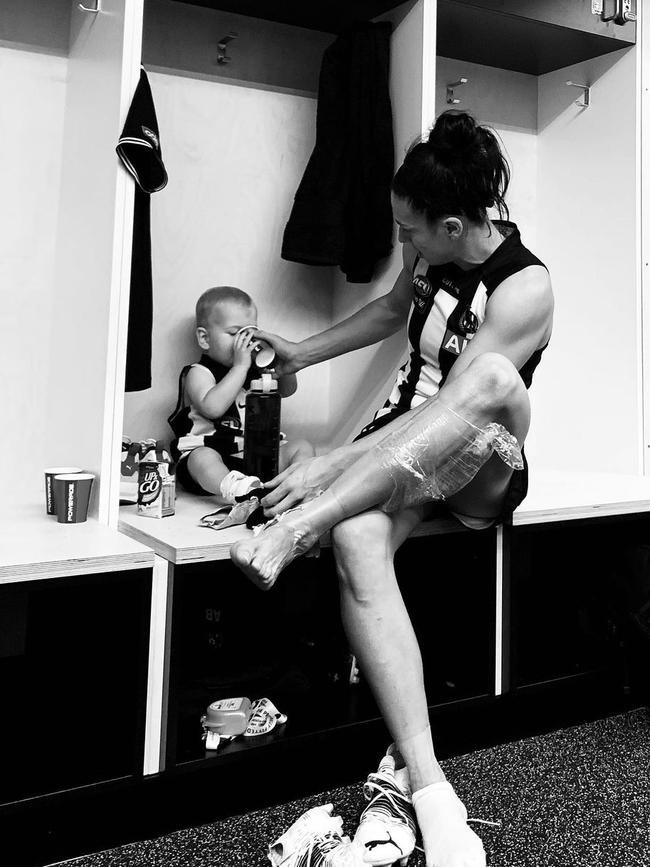
“My mum’s Italian and we were Catholic growing up, we used to go to church on the weekends, and so for me, I never wanted to be gay because I saw it as a sin and something that was wrong with me,” she said.
“I didn’t want to let my family down or mum and dad think that they did something wrong to end up with a gay child. So I hid it in for a long time.
“The hardest thing was coming out to mum and dad because I thought I’d lose them.
“So for me, sport was nothing. If I was to lose sport, I couldn’t care less because I just didn’t want to lose mum and dad.”
Once she was able to tell her family, sport became a safe haven of sorts. A neutral ground where she had unconditional family support for her athletic endeavours regardless of anything else going on in her life.
“For that one hour of netball, mum and dad would come even though we would be struggling at home about my sexuality,” she said.
“They were there supporting me and it wasn’t based on my sexuality, it was all based on my performance. I guess sport brought us back together.”
These days, she almost has to ask her parents to tone down their gay pride. Their love has flowed down through her to her own children and being a mother is her most treasured achievement.
But she will also continue to be a leader on and off the sporting arena for the next generation.
She hopes that means more and more athletes - both in netball and footy - will be comfortable to be themselves and know that it won’t cost them a career.
“There’s not just me anymore that’s a gay athlete in netball, there are a few players - and not just in Australia but all around the world,” she said.
“I’m proud to say that netball is no longer the girly sport where you have to wear a ribbon.”
More Coverage
Originally published as Superstar Ash Brazill’s pride in being the first openly gay elite netballer and her personal journey or torment



